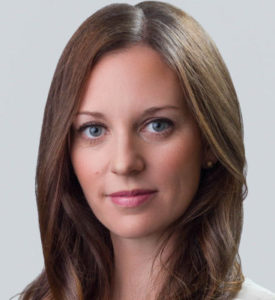
You are joining us from the Roosevelt Institute. What has your work there focused on?
For the last eight years, my work has focused on gender and racial inequality in the U.S. health and economic systems. I have spent the last few years thinking about how an increase in corporate power in recent decades — paired with the erosion of the social safety net and the decline of public programs more broadly — has impacted the health and economic well-being of women and families.
What attracted you to this specific role at IWPR?
I have long admired the work of IWPR, and it’s often one of the first places I turn to when I’m doing my own research on gender inequality, whether it is focused on pay inequity, job quality, or reproductive health access. I am thrilled to be joining the Institute to build an eco-system of research and policy centers to leverage research and evidence to grow women’s economic, political and social power for the long term.
Given our Pivotal funding announce, what does a successful research and action hub look like?
A successful hub will develop research that accurately diagnoses the root causes of gender and racial inequality and proposes bold policies to advance equity. It will drive narrative and culture change and build relationships between and among researchers and advocates to advance transformative change.
What fuels your passion for this work?
I’ve spent my entire educational and professional career focused on issues of gender equity. As it is for many of us, the personal is very much political and professional. I grew up in a home with a single mother who raised three daughters while waitressing full time. I saw first-hand what the current pandemic and our failed policy response has laid bare and what women have long known: the economy was not made to work for women and it has failed them for too long.
Put your future-seeing glasses on: What does true equity look like for women?
Asking someone what gender equity looks like gives them permission to imagine something so much bigger and better than our present reality. Gender equity means all individuals have bodily autonomy and access to reproductive health care, access to safe, high quality jobs and a fair wage. It means mothers of color can sleep soundly knowing that their children will not be targeted or harmed by law enforcement, and the end of toxic masculinity and gendered racism. Gender equity means we have bold public policies and programs that ensure a safe, dignified and secure life for all families.

